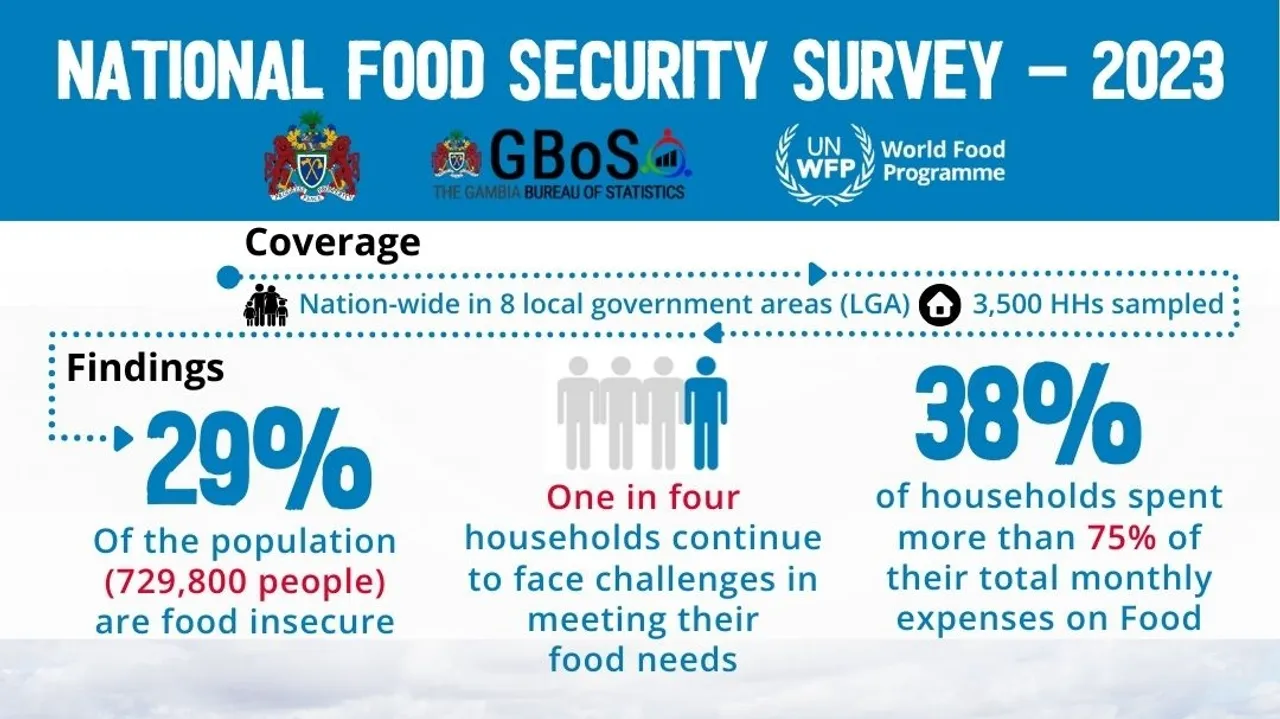According to the 2023 Gambia Food Insecurity Survey, around 30% of households in the country experience food insecurity. Clearly, The Gambia is dealing with an insidious crisis that threatens the foundation of its agrarian society.
A startling reality has emerged from the 2023 Gambia Food Insecurity Survey, which meticulously examined the country’s food environment: almost three out of ten households nationwide suffer from food insecurity, which prevents families from consistently having access to enough food for an active, healthy life. Kuntaur, a prominent hub for rice production, is the local government area most affected by this crisis, with a startling 61% of households experiencing food insecurity.
What is this crisis about?
Kuntaur Local Government Area is the most afflicted, with food insecurity rates of 44% and 41%, respectively, closely followed by Janjangbureh and Basse.
These findings are presented in a recent paper compiling a study by the Gambia Bureau of Statistics with the support of the World Food Programme.
In farming villages, where rice is a staple food in the Gambian diet, this issue hits home especially hard because, unfortunately, farming has not spared these people from hunger.
Rather than being the breadbasket of the country, these places are more food insecure than their urban counterparts, who depend more heavily on imported rice and other staples.
There are several causes for this crisis.
The study presents a nuanced picture of the underlying causes of this grave circumstance. In addition to the evident difficulties posed by economic pressure and climate change, the problem is made worse by farmers’ dependence on a single crop system, which makes them susceptible to changes in the market and natural disasters.
Furthermore, the trend in urban regions toward imported food staples emphasizes the increasing gap between national dietary requirements and local agricultural output, highlighting the precarious state of food security in an increasingly globalized food system.
The path to a sustainable solution
Talk is turning to long-term solutions that can close the gap between access and availability of food as The Gambia deals with this problem.
Many experts believe in the significance of high-quality food in guaranteeing food security and plan to explore the subtleties of food insecurity in The Gambia as the solutions.
In order to counteract the rise in nutrition-related illnesses like diabetes, this approach suggests that increasing food production alone might not be sufficient if the nutritional quality does not meet the population’s health needs.
Instead, it suggests a multifaceted strategy that includes improvements in food quality, agricultural diversity, and economic resilience.










